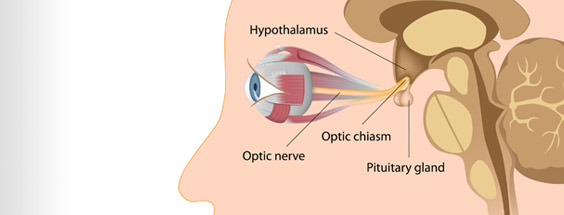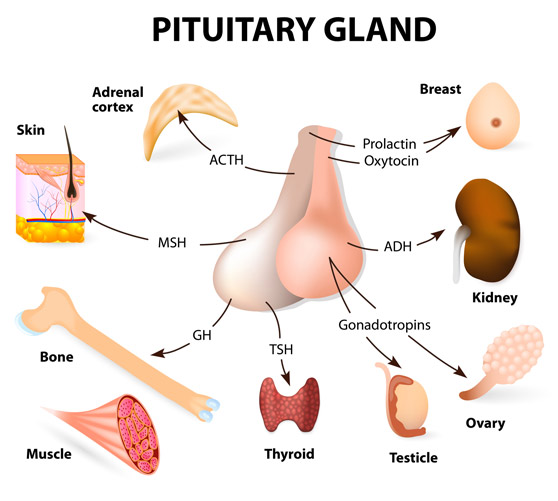
Other hormones it releases are involved in growth of soft tissues in the bone, control of fluid balance and regulation of periods.
Pituitary Gland hormones:

Problems can arise from the pituitary gland if a small benign tumour of the gland makes too much of a particular hormone. Examples of this include:
Prolactinoma: Too much prolactin hormone, resulting in irregular or stopping of periods in women or symptoms of low testosterone such as erectile dysfunction in men
Acromegaly: Too much growth hormone, resulting in sweating, headaches, increase in size of hands and feet, teeth separation etc
Cushing’s Disease: Too much ACTH (a hormone which controls the adrenal glands) which results in symptoms and signs of too many steroids in the blood stream such as weight gain, typical physical features, hair loss, dark bruising of skin etc
Sometimes a larger benign tumour of the gland doesn’t make too much of a hormone but can prevent the remainder of the healthy gland from working properly. This may result in partial or complete pituitary failure (“hypopituitarism”). The presentation of this condition is variable and depends on which hormones are lacking.
Treatment of pituitary disease varies depending on the underlying abnormality. Certain conditions are treated with tablets, others with injections and some with neurosurgery.